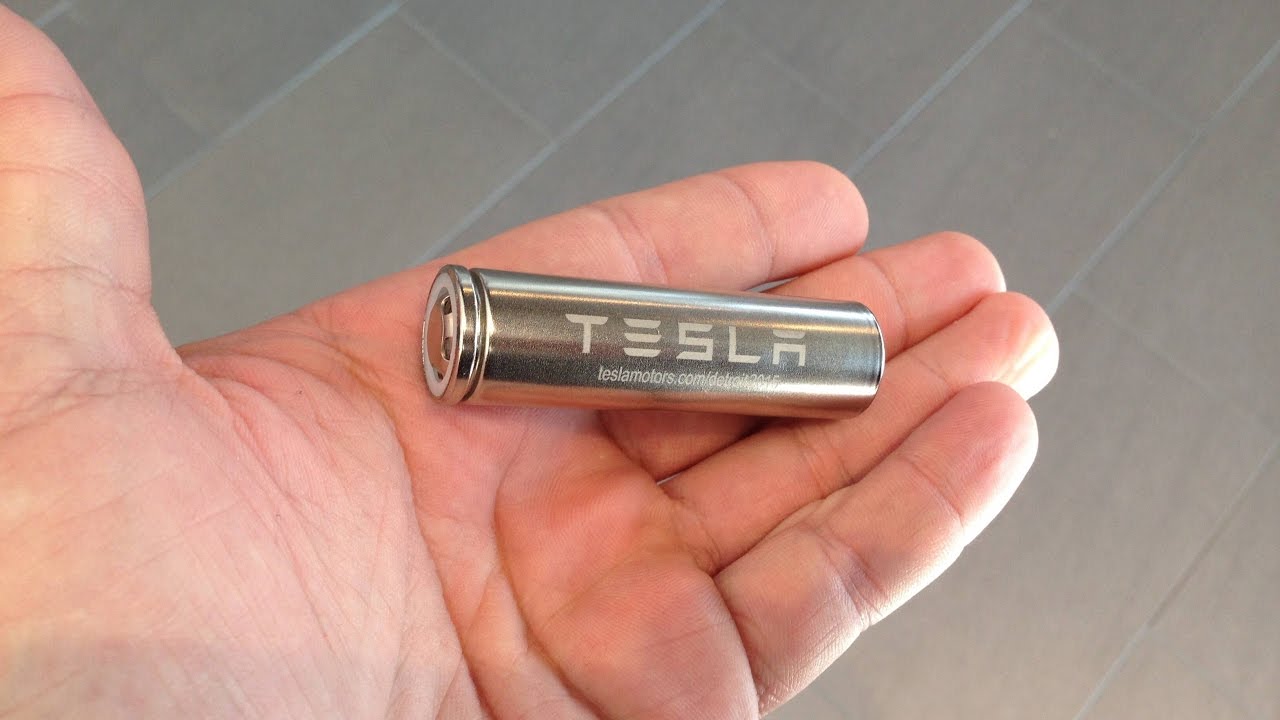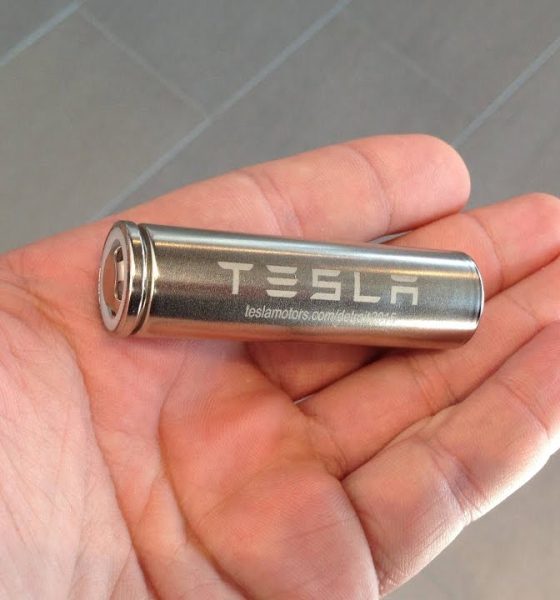

News
Tesla’s battery strategy has “no advantage,” Ford CEO says
Tesla’s battery strategy will not be adopted by legacy automotive company Ford, because Jim Hackett, the company’s CEO, says there is “no advantage” in migrating capital into owning a cell manufacturing facility.
During Ford’s Q2 2020 Earnings Call in late July, Morgan Stanley’s Adam Jonas asked about the company’s strategy to produce EV batteries in-house, as opposed to sourcing the cells from third-party companies like Panasonic and LG Chem.
Hackett, who elected to retire from his post as head of Ford earlier this year, stated that his team did a “deep dive” on whether it was advantageous to create its own battery cells.
It proved not to be advantageous for Ford.
“I’ve met with a number of the people that you know that are in the supply side of this. And it was our estimation, in fact, our whole team went through a really deep dive on this six months ago, that the supply chain has ramped up since Elon built his Gigafactory,” Hackett said. “And so there’s plenty there that does not warrant us to migrate our capital into owning our own factory. There’s no advantage in the ownership in terms of cost or sourcing as what Ford can draw on.”
Instead, the company will continue to go the path that it is now, which requires sourcing batteries from third-party suppliers instead of researching and improving on cells within the company’s facilities across the world.
Interestingly enough, Tesla has found tremendous advantages in producing its own batteries at its Giga Nevada facility, which is responsible for assembling battery packs with the help of Panasonic.
Forbes stated that a Trefis analysis from January 2020 showed that battery costs fell by 45% from 2016 to 2019, which effectively decreased the price of Tesla’s vehicles by $7,000 on average.
Despite this, Ford isn’t budging, and the company’s executives don’t believe they require a battery plant at the current time.
Hau Thai-Tang, Ford’s Head of Product Development and Purchasing, stated that the company would need to manufacture between 100,000 and 150,000 electric vehicles a year to justify a battery production facility, Automotive News reported.
“We don’t have that volume initially to justify that capital expenditure,” Thai-Tang said. “There’s insufficient scale for any one OEM, other than somebody who’s a full-line battery-electric manufacturer like Tesla, to justify that spending.”
Thai-Tang’s statement indicates that there is a possibility that Ford could change its mind about battery production in the future. Still, the company will have to increase the production of its electrified lineup. For now, he is okay with buying batteries from suppliers.
“It gives us the ability to access the latest technology and innovation across multiple suppliers,” he said.
Tesla, however, is thriving by developing its battery technology. Many Wall Street analysts contribute the company’s cell strategy as a primary reason for its success, which has been exponential so far this year for investors.
Ford is still fine-tuning its EV project and is planning to release a fleet of forty electric cars by 2023 by spending $11 billion by 2022 to develop the technology required to be competitive in the quickly-growing sector.

Elon Musk
Tesla director pay lawsuit sees lawyer fees slashed by $100 million
The ruling leaves the case’s underlying settlement intact while significantly reducing what the plaintiffs’ attorneys will receive.

The Delaware Supreme Court has cut more than $100 million from a legal fee award tied to a shareholder lawsuit challenging compensation paid to Tesla directors between 2017 and 2020.
The ruling leaves the case’s underlying settlement intact while significantly reducing what the plaintiffs’ attorneys will receive.
Delaware Supreme Court trims legal fees
As noted in a Bloomberg Law report, the case targeted pay granted to Tesla directors, including CEO Elon Musk, Oracle founder Larry Ellison, Kimbal Musk, and Rupert Murdoch. The Delaware Chancery Court had awarded $176 million to the plaintiffs. Tesla’s board must also return stock options and forego years worth of pay.
As per Chief Justice Collins J. Seitz Jr. in an opinion for the Delaware Supreme Court’s full five-member panel, however, the decision of the Delaware Chancery Court to award $176 million to a pension fund’s law firm “erred by including in its financial benefit analysis the intrinsic value” of options being returned by Tesla’s board.
The justices then reduced the fee award from $176 million to $70.9 million. “As we measure it, $71 million reflects a reasonable fee for counsel’s efforts and does not result in a windfall,” Chief Justice Seitz wrote.
Other settlement terms still intact
The Supreme Court upheld the settlement itself, which requires Tesla’s board to return stock and options valued at up to $735 million and to forgo three years of additional compensation worth about $184 million.
Tesla argued during oral arguments that a fee award closer to $70 million would be appropriate. Interestingly enough, back in October, Justice Karen L. Valihura noted that the $176 award was $60 million more than the Delaware judiciary’s budget from the previous year. This was quite interesting as the case was “settled midstream.”
The lawsuit was brought by a pension fund on behalf of Tesla shareholders and focused exclusively on director pay during the 2017–2020 period. The case is separate from other high-profile compensation disputes involving Elon Musk.
Elon Musk
SpaceX-xAI merger discussions in advanced stage: report
The update was initially reported by Bloomberg News, which cited people reportedly familiar with the matter.

SpaceX is reportedly in advanced discussions to merge with artificial intelligence startup xAI. The talks could reportedly result in an agreement as soon as this week, though discussions remain ongoing.
The update was initially reported by Bloomberg News, which cited people reportedly familiar with the matter.
SpaceX and xAI advanced merger talks
SpaceX and xAI have reportedly informed some investors about plans to potentially combine the two privately held companies, Bloomberg’s sources claimed. Representatives for both companies did not immediately respond to requests for comment.
A merger would unite two of the world’s largest private firms. xAI raised capital at a valuation of about $200 billion in September, while SpaceX was preparing a share sale late last year that valued the rocket company at roughly $800 billion.
If completed, the merger would bring together SpaceX’s launch and satellite infrastructure with xAI’s computing and model development. This could pave the way for Musk’s vision of deploying data centers in orbit to support large-scale AI workloads.
Musk’s broader consolidation efforts
Elon Musk has increasingly linked his companies around autonomy, AI, and space-based infrastructure. SpaceX is seeking regulatory approval to launch up to one million satellites as part of its long-term plans, as per a recent filing. Such a scale could support space-based computing concepts.
SpaceX has also discussed the feasibility of a potential tie-up with electric vehicle maker Tesla, Bloomberg previously reported. SpaceX has reportedly been preparing for a possible initial public offering (IPO) as well, which could value the company at up to $1.5 trillion. No timeline for SpaceX’s reported IPO plans have been announced yet, however.
News
Tesla already has a complete Robotaxi model, and it doesn’t depend on passenger count
That scenario was discussed during the company’s Q4 and FY 2025 earnings call, when executives explained why the majority of Robotaxi rides will only involve one or two people.

Tesla already has the pieces in place for a full Robotaxi service that works regardless of passenger count, even if the backbone of the program is a small autonomous two-seater.
That scenario was discussed during the company’s Q4 and FY 2025 earnings call, when executives explained why the majority of Robotaxi rides will only involve one or two people.
Two-seat Cybercabs make perfect sense
During the Q&A portion of the call, Tesla Vice President of Vehicle Engineering Lars Moravy pointed out that more than 90% of vehicle miles traveled today involve two or fewer passengers. This, the executive noted, directly informed the design of the Cybercab.
“Autonomy and Cybercab are going to change the global market size and mix quite significantly. I think that’s quite obvious. General transportation is going to be better served by autonomy as it will be safer and cheaper. Over 90% of vehicle miles traveled are with two or fewer passengers now. This is why we designed Cybercab that way,” Moravy said.
Elon Musk expanded on the point, emphasizing that there is no fallback for Tesla’s bet on the Cybercab’s autonomous design. He reiterated that the autonomous two seater’s production is expected to start in April and noted that, over time, Tesla expects to produce far more Cybercabs than all of its other vehicles combined.
“Just to add to what Lars said there. The point that Lars made, which is that 90% of miles driven are with one or two passengers or one or two occupants, essentially, is a very important one… So this is clearly, there’s no fallback mechanism here. It’s like this car either drives itself or it does not drive… We would expect over time to make far more CyberCabs than all of our other vehicles combined. Given that 90% of distance driven or distance being distance traveled exactly, no longer driving, is one or two people,” Musk said.
Tesla’s robotaxi lineup is already here
The more interesting takeaway from the Q4 and FY 2025 earnings call is the fact that Tesla does not need the Cybercab to serve every possible passenger scenario, simply because the company already has a functional Robotaxi model that scales by vehicle type.
The Cybercab will handle the bulk of the Robotaxi network’s trips, but for groups that need three or four seats, the Model Y fills that role. For higher-end or larger-family use cases, the extended-wheelbase Model Y L could cover five or six occupants, provided that Elon Musk greenlights the vehicle for North America. And for even larger groups or commercial transport, Tesla has already unveiled the Robovan, which could seat over ten people.
Rather than forcing one vehicle to satisfy every use case, Tesla’s approach mirrors how transportation works today. Different vehicles will be used for different needs, while unifying everything under a single autonomous software and fleet platform.








